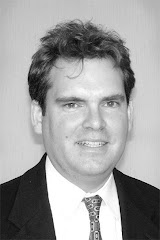WASHINGTON, DC – Senator John McCain’s Chief Economic Adviser, Carly Fiorina, was CEO of Hewlett-Packard (HP) when the company surreptitiously avoided the trade boycott of Iran. McCain, who recently urged further divestment from Iran, picked Fiorina to be his top adviser on the economy while she is also serving as head of the Republican National Committee Victory Fund. It was under Fiorina’s leadership as CEO that, according to an April 19, 2004, Forbes article titled “Trading With The Enemy,” HP traded with the Iranians.
If you want to get around export controls, just sell the product to a front company in Dubai. The middlemen will take it from there… Hewlett-Packard, Dell and Microsoft, among many other U.S. companies, keep Dubai offices and are favorites these days among Iranian traders in Dubai. (Forbes, 4/19/04)
Thursday, June 12, 2008
Subscribe to:
Post Comments (Atom)





2 comments:
John McCain’s presidential campaign is being run by Washington lobbyists and paid for with their money. It’s hypocritical of John McCain to denounce the influence of lobbyists when his two closest aides—Charlie Black and Rick Davis— were top-tier lobbyists in Washington until just recently.
Rick Davis, his campaign manager, is on leave from his lobbying firm (managing partner of the very partisan Davis, Manafort & Freedman, Inc., a lobbying firm based in Arlington, Virginia). The current head of John McCain's Senate office in Washington, Mark Buse, spent six years lobbying pharmaceutical firms, telecoms, oil and gas interests, and other corporate clients.
Over the last month, several senior advisors and staff were fired or forced to resign from McCain’s presidential campaign due to lobbying efforts on behalf of foreign countries such as Burmese (military junta), Saudi Arabia and Nigeria (run by General Sani Abacha, a ruthless and corrupt dictator). Many current and former McCain staffers/lobbyist have practiced Washington's “business as usual” even as their boss was condemning it.
John McCain vows that, if he's elected, he'll change the revolving door culture in Washington. But if he can't do so in his own campaign or U.S. Senate office, how can he do so if elected president?
John McCain was one of five United States Senators known as the Keating Five who were accused of corruption in 1989, igniting a major political scandal as part of the Savings and Loan crisis of the late 1980’s and early 1990’s.
McCain, along with the other Senators, was accused of improperly aiding Charles Keating Jr., chairman of the failed Lincoln Savings and Loan Association, which was the target of an investigation by the Federal Home Loan Bank Board. In 1987, McCain was one of five Senators whom Keating contacted in order to prevent the government’s seizure of Lincoln Savings and Loan Association.
By 1987, John McCain had received more than $110,000 in campaign contributions from Charles Keating and associates of the Lincoln Savings and Loan Association: more than any other member of the U.S. Senate at that time.
In October of 1989, The Arizona Republic reported that, in addition to campaign contributions, McCain's wife and her father had invested $360,000 in a Keating shopping center in 1986, a year before John McCain met with the federal regulators to discuss the government's investigation of Lincoln. The paper also reported that the McCains had made at least nine trips at Keating's expense on his private jet, a violation of congressional ethics rules.
After a lengthy investigation, the U.S. Senate Ethics Committee testimony revealed that John McCain acted improperly. In addition, the Senate Ethics Committee reprimanded McCain and the other Senators for "questionable conduct."
When it comes to the Washington power game, we need to stop trading access for big money. We can't change Washington without breaking the influence of the special interests.
Post a Comment